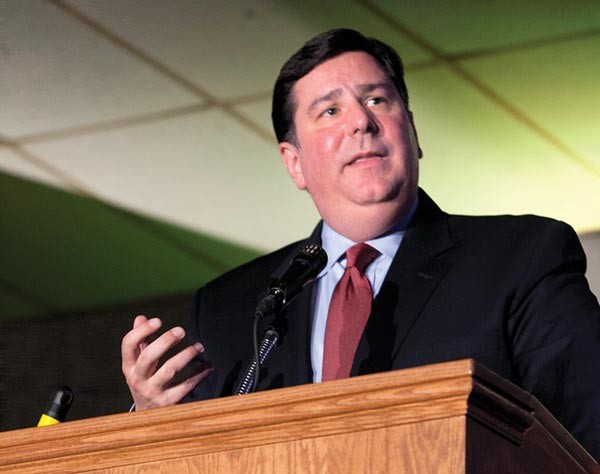The court battle that partially vindicated Jordan Miles' claim that his civil rights were violated by three Pittsburgh Police officers may be over, but a new legal fight seems likely to emerge over how much of the jury's $119,016.75 award he will ever see.
Under federal rules, experts say, Miles could be on the hook for legal costs associated with defending the same officers he accused of falsely arresting and beating him back in 2010 — and that's in addition to his own legal fees. And Mayor Bill Peduto hasn't ruled out the possibility that the city could try to recoup some defense-related costs from Miles, though he said that would be unlikely "unless there's a severe cost to the taxpayers."
"At this point, our goal is to try to find ways to learn from this and to have policies in place that will help to deter it from happening in the future," Peduto says.
But the costs to the city are not insignificant. Mayoral spokesman Tim McNulty says that from 2010 to part of 2013, the city spent $195,789 to defend officers Richard Ewing, David Sisak and Michael Saldutte. That doesn't include the defense costs in the most recent civil trial, McNulty says, meaning the final bill will be higher.
Complicating the matter is a series of settlement talks between Miles and the city before a jury ever heard his case. In 2011, the city offered a reported $180,000 to settle the case. Miles rejected that offer, but in 2012 he agreed to a partial settlement: He accepted $75,000 to drop the city itself from the lawsuit, even as the city continued to pay for its officers' defense.
It is possible that the $75,000 could be subtracted from Miles' jury award, legal experts say. McNulty did not confirm whether that would happen in this case. Miles' legal team was still looking into the issue, according to Brandi Fisher, president of the Alliance for Policy Accountability.
So why might Miles be on the hook for some of these costs?
"It's really complicated," says University of Pittsburgh law professor David Harris.
At issue are two competing objectives enshrined in the law and the rules that govern federal lawsuits. On the one hand is a desire to encourage plaintiffs to file civil-rights lawsuits; on the other, a desire to settle cases before they consume scarce judicial resources.
Without some financial incentive, it would be tricky to get lawyers to take up civil-rights complaints. "In the American system, every party [usually] bears their own fee," says Ed Olds, a lawyer who has been involved in civil-rights lawsuits. And that means the fight can be one-sided.
Government officials, including police officers, often have the financial backing of their municipality for their legal defense. And civil-rights violations are also "very difficult to prove," says Harris. Even if you win, he adds, the "actual damages are often not great enough so you would get an attorney to take the case."
In order to give civil-rights laws some teeth, Congress gave plaintiffs' attorneys a financial incentive. In 1976, Congress passed the Civil Rights Attorney's Fees Award Act, which says that if a plaintiff prevails, the defense will be on the hook for the winner's legal fees.
"This was intended to have the effect of bringing lawyers into these cases," adds Harris. "And sometimes it works."
But Congress also allows the federal court system to set its own rules, known as the Federal Rules of Civil Procedure. And under Rule 68, which governs offers to settle a case, when one party refuses a settlement offer, he or she "must pay the [court] costs incurred after the offer was made," should a verdict yield less money than a final settlement. Experts say the goal is to encourage both sides to reach an agreement before a case comes to trial.
In this case, the jury awarded Miles roughly $60,000 less than he was offered in 2011. As a result, Miles could be on the hook for defense costs like paying for court transcripts, filing fees and the cost of expert witnesses hired to testify against him.
Still, it's almost impossible to predict what Miles will end up getting — or owing. The full settlement agreement has never been made public, and calculating a price tag may be determined in post-trial motions and arguments, Harris says.
"None of this stuff is definitive; it's all subject to argument," says Olds.
For his part, Miles' lawyer says the trial wasn't about money. "Jordan Miles did not care about the amount awarded today," Joel Sansone told reporters immediately following the March 31 verdict. "The only thing he wanted to hear was that these officers did the wrong thing."
Sansone did not respond to requests for further comment on this story. But some activists worry that the city will be sending the wrong message if it goes after Miles for the legal costs of defending the officers or appeals the jury award.
"I think it's disheartening for this to even be a topic, or a possible consideration," says Fisher, of the Alliance for Police Accountability.
Fisher notes that, although Peduto says he hasn't ruled out seeking payment from Miles, after the trial was over, he issued a statement saying "Our community must start healing," and rebuilding trust between the community and police.
"I am ready to start that now," the statement added.
How, Fisher asks, "can you heal if you're talking about pursuing action [against Miles]? If they do, I hope they're ready for the community's response."















